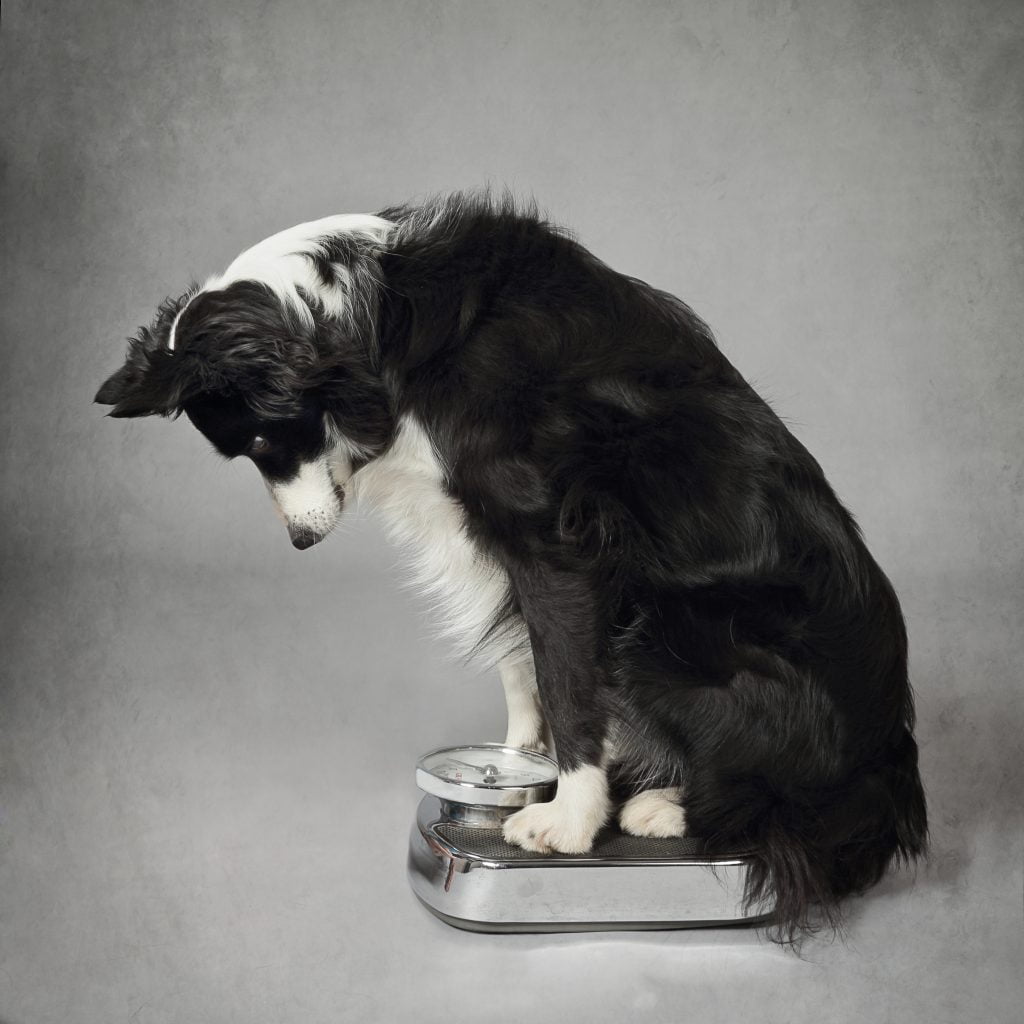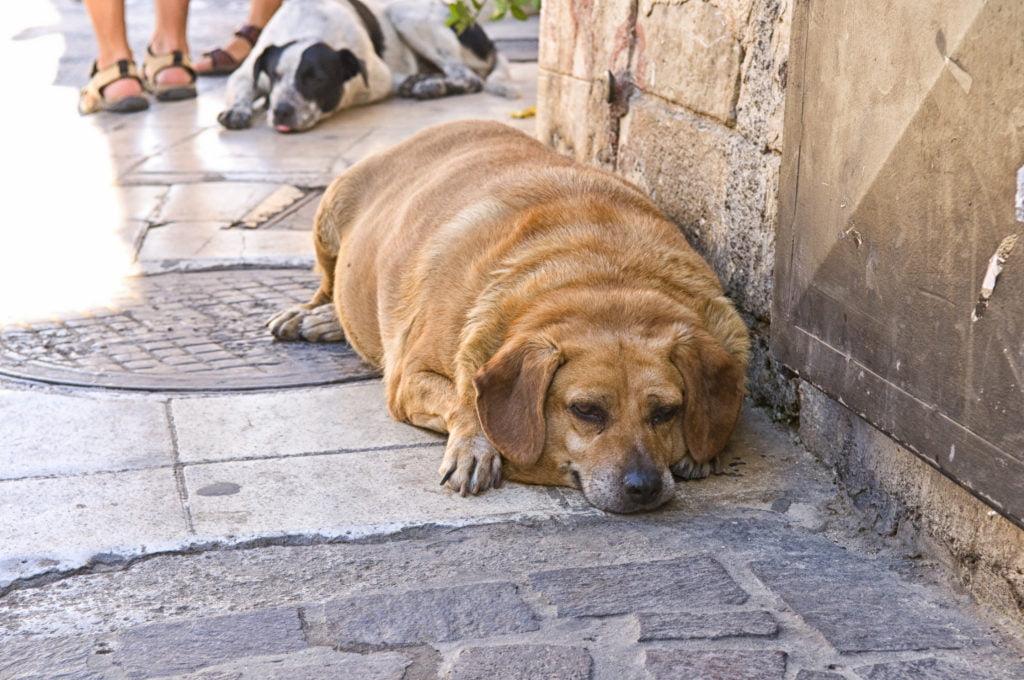PetSure is an underwriting agency that works with various insurers including IAG, AAMI, PetBarn, Guide Dogs, RSPCA, Woolworths, Bupa, Medibank and HCF, and claims to have some half a million pet policies on its books.
The company said in a media statement that claims for pet treatments related to obesity in Australia have doubled in the five years to February 2020.
That has made obesity the number one health concern facing our dogs as well as our cats.
Among the health conditions linked to – or made worse by – obesity in dogs, PetSure said, are:
- diabetes
- heat intolerance
- osteoarthritis and other joint problems
- heart and breathing problems
- glucose intolerance
- inverterbral Disc Disease
- tracheal collapse
- even certain types of cancers
Meanwhile, the Australian Veterinary Association says that other obesity-linked health problems in pets can include liver disease, skin and back problems.
Despite (often expensive) treatments, PetSure’s senior vet Dr Oliver Conradi said that obesity in dogs and cats can be shortening their lifespan.
“There is a body of evidence to suggest that fit and lean dogs have a significant increase in their median lifespan and a significant delay in the onset of chronic disease,” he said.
Unhealthiest dog breeds
Any breed of dog can be susceptible to obesity, however PetSure said that there are some breeds in Australia which stand out as being more affected than others – and these aren’t necessarily the most popular dog breeds, or breeds that are similar in size.
Digging into its claims data, the company said that the unhealthiest dog breeds in terms of obesity rates are (in order) the:
- Australian Terrier
- Siberian Husky
- Bichon Frise
- Schnoodle (Schnauzer/Poodle cross)
- Maltese Terrier
- Rottweiler
Causes of obesity in dogs
For the most part, obesity in dogs comes down to lifestyle factors – eating too much, having a poor diet and/or not getting enough exercise, just the same as for people.
Eating too much can be the result of feeding more than the recommended amount for both wet and dry dog food, feeding too many treats and resorting to feeding human treats that are high in fat and sugar instead of more natural and healthy dog treats.
Meanwhile exercise for dogs involves both going for regular walks/runs, as well as generally being active and playing a lot throughout the day.
Yet in some instances, obesity in dogs can be caused by something beyond their owner’s control.
The Australian Veterinary Association notes that when a pet is desexed, they often put on extra weight as a result of the changed hormone levels in their body.
It also said that female dogs and cats, as well as ones that live in a single-pet household, can be more prone to obesity than others.
But there can also be more sinister causes of obesity.
“Although the vast majority of pets are obese because of their lifestyle, there are also some diseases that can cause obesity in dogs and cats,” Petsure’s Dr Conradi warned.
“If people are concerned that their pet is gaining weight in spite of a healthy diet, they should chat to their vet.”
What is a healthy dog weight?
There is no fixed weight that is deemed to be healthy, as there are a range of factors that can influence what actually makes a healthy dog weight. This includes:
- their breed (and whether they are a purebred or a cross)
- their age (puppies should obviously be lighter than adult dogs)
- whether they are male or female
- their size relative to their breed
As such, guides on what makes a healthy dog weight tend be done as averages to give some indication of what to aim for. But your vet is best placed to advise on what a healthy weight is specifically for your dog.
Tips for a healthy dog weight

As with virtually anything health-related, prevention is better than cure when it comes to obesity.
Some ways of maintaining a healthy dog weight include:
- avoid feeding your dog human treats, such as biscuits and cakes
- sticking to the amounts recommended on the packet of your pet food
- monitoring how much your dog eats, both in terms of meals and treats
- ensuring your dog gets regular exercise
If your dog is already overweight, Dr Conradi urges consulting with your vet before making any drastic diet changes, to ensure you have a target weight to aim for and to rule out any medical conditions that may be causing your dog to put on extra weight.
An overweight dog diet plan may include:
- switching to a low calorie pet food
- alternatively, making your dog’s food yourself using natural ingredients
- swapping high-fat bones for carrots
- gradually increasing the amount of exercise they get











